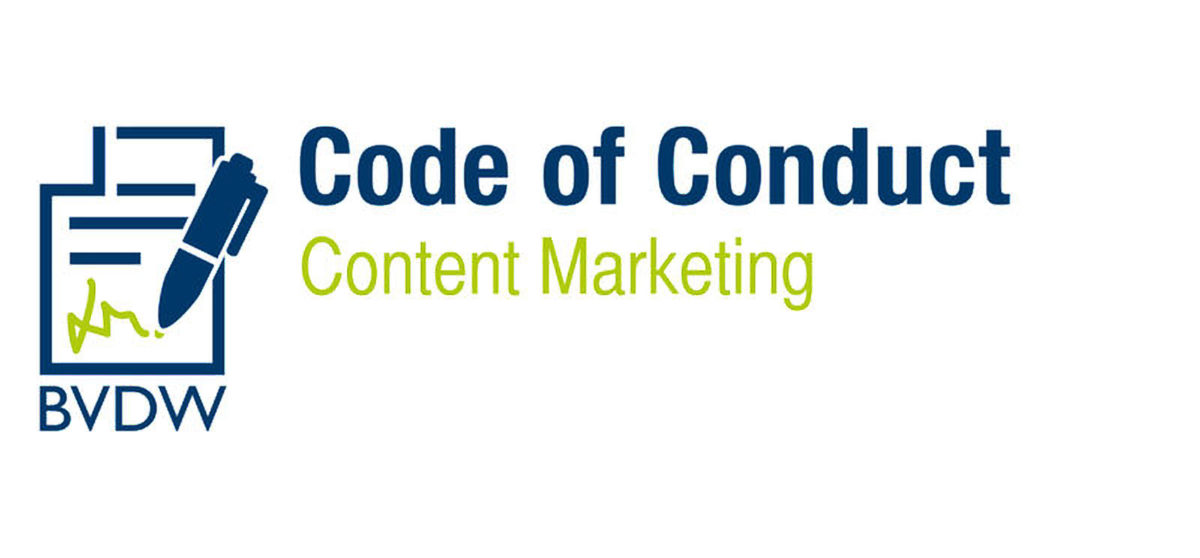How content marketing can benefit from a code of conduct
Everyone seems to have a different understanding of content marketing.

Content marketing has long established itself as an independent discipline and taken a firm place in many marketing strategies. However, in order to really grow up and differentiate itself clearly from other marketing disciplines, content marketing still lacks one important aspect: it has no uniform definition!
Of course different opinions and definitions are not all bad. Such friction can sometimes even lead to meaningful developments, but in this case the situation is difficult to say the least. Not only have different views developed on what content marketing is and what all it involves, but a range of services and providers has also emerged that is very difficult to differentiate. This is not surprising, because content marketing is a lucrative service. For many years now, budgets have been shifting increasingly towards online marketing. Disciplines such as conventional advertising and search engine marketing are becoming less important due to changes in consumer behavior. Content marketing, on the other hand, re-focuses on the consumers and seeks to gain their attention with content that is truly relevant to them. This arouses new desires, especially among those suffering from the budget shifts.
Thus, there are a multitude of service providers from very different areas flooding the provider market for content marketing. These include experts from the fields of PR, marketing, social media, corporate communications, corporate publishing, media, SEO, sales or branding. They act as consultants, concept developers and content producers, or offer full-service packages. Hardly any digital agency can do without content marketing in its range of services today. For the companies buying these services, this may sound like a perfect market with great competition and low prices. In practice, however, the situation is quite different, as the services can only be compared with each other to a very limited extent. They lack a uniform basis and reliable quality criteria.
The different roots of the providers result in equally different approaches and interpretations of content marketing. A journalist, for example, will have a different view of content than a search engine optimizer or a PR professional will. The difficulty on the demand side now consists of identifying these roots, drawing the right conclusions and making the best possible choice for each company’s own needs. However, these needs themselves are often not yet clearly outlined, because the demand side also still has large gaps in knowledge. It is often completely unclear what is part of content marketing and what strategic footwork has to be done. A confusing and non-transparent service market provides little relief in this regard.
This lack of transparency on the market was one of the starting points for the “Code of Conduct Content Marketing” recently presented by the German Association for the Digital Economy and its Content Marketing focus group.
Increased transparency and uniform quality standards
As stated in the teaser for the code of conduct (in German), “content marketing requires guidelines and a uniform understanding of the market”. The following six factors are listed as the supporting pillars:
- Uniform understanding and definition
- Transparency with regard to the sales structure, the range of services and the cost structure
- Professional methods in working with third parties, mandatory identification and legal framework conditions
- Quality and truth
- Measurability
- Distribution
Eleven agencies, including market leaders such as C3 and fischerAppelt, have already signed these criteria and conditions. Violations against this voluntary commitment will be examined by a complaints committee. Above all, however, acceptance by other providers will be decisive for success. Should other agencies sign the code of conduct, this would be a strong signal regarding the professionalization of content marketing.
The bottom line:
With its Code of Conduct Content Marketing, BVDW is sending a clear message: content marketing needs a uniform understanding and comprehensive guidelines. That has not been the case thus far. As such, it has been extremely difficult for companies to find a suitable service provider. This could finally change. But supplier proliferation is only one side of the problem. The corporate customers represent the other side, in that their understanding of content marketing is still too often characterized by misunderstandings and sometimes even gaps in knowledge. Those who don’t know exactly what they need for successful content marketing will have trouble selecting a good provider.






